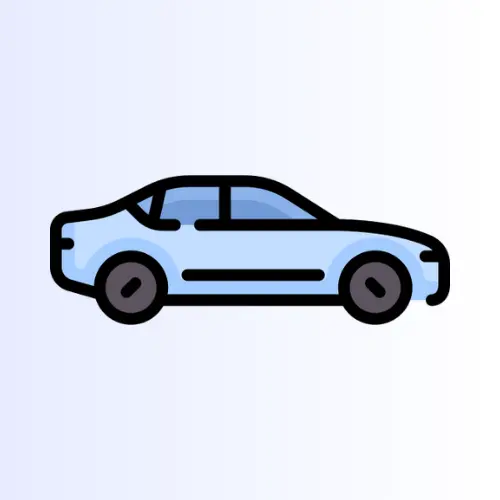A few months ago, I bought a 2015 Subaru Outback and the front left caliper was acting up, so I had a mechanic check it out. The mechanic recommended replacing the two front calipers (they were pretty rusty), the front-left brake hose, and then just greasing the rear caliper pistons.
I’m no longer hearing any weird noises now from the front-left and the brakes feel much smoother, but there’s a couple differences that are throwing me off. The distance the brake pedal needs to be depressed before the brakes start to bite feels a lot longer now. I’ve also noticed a kind of hysteresis, where if I apply the brakes twice within a second or two, the second time I apply them, they’ll start biting earlier.
Should I get the brake fluid replaced / bled? Could air in the brake lines explain this behaviour? (I assumed air in brakes line would had to have been bled but it’s not explicitly listed on the bill I got.) Any other explanations?
The mechanic did paint the calipers too, just to delay rust, and there was a bit of overspray on the rotors, but I’m sure it got instantly scraped off by the brake pad.
Any advice would be appreciated!
Edit: To clarify, I did not get the pads replaced. The inspection done when I bought the car showed about 50% life left on the pads.
Follow up: You folks were right - They bled the brakes and the car felt like 90% better. They said the master brake cylinder might have been leaking a bit so they offered to replace it with no labor charge, so I sprang for that too, but it’s hard to tell if that made any difference. Either way, it feels back to normal now, so thanks for your advice!
They didn’t bleed it right. Air is still in the lines. Depending on how long the idiot left the caliper off the car he likely drained it back to the ABS pump too, which is a notorious problem on Subaru’s. That’s a complete rookie mechanic mistake and they need to make it right, because air limits your max braking force and your ABS will not work at all if there is air in the pump.
They need to be vacuum bled and also bled in the specific order specified in the factory service manual. The ABS pump may also need to be manually triggered to purge it, which unfortunately is something only easily done with a dealer SSM tool.
Sounds like air in the lines, if they didn’t fill the caliper before attaching the hose it can sometimes be more difficult to bleed all the air out.
Cold brakes don’t bite as hard for most types of brake pads so that tracks as normal to me. I’m guessing you got new pads, so if they haven’t done the bed-in procedure, doing that might help with brake pedal response also.
Thanks for the advice. I actually didn’t get the brake pads replaced, so they don’t need to be bedded in. Would you take it back to the same mechanic? (Any idea what it’ll cost me?)
I would take it back, but I have no idea on cost, I don’t use mechanics.
I agree, there’s air in your hoses. Take it back, they should fix it under warranty. Had to take my car back twice before my brake pedal felt good again. After the first time it did improve, and the mechanic though it felt as it’s supposed to be, but my pedal felt really firm beforehand and I liked that.
Some cars are a PITA to get all the air out of the hoses.
A mechanic that changed a brake hose and calipers should have at least surfaced the rotors and changed the pads. It’s more than likely the pads and rotor got real hot. I personally would find a new mechanic, but your problem is 100% air in the lines. You need the brakes bled.
Sounds like you should start with taking it back to the mechanic and having them bleed the system properly.
If that doesn’t resolve the issue, then find out what pads were installed, and what came out. Pad material affects how the brakes “bite”, but what your describing sounds like once you have “pumped the brakes up” you get the bite you are looking for, which leads me to believe air in the lines.
Everyone is talking about bleeding, but I wonder if the pads were not broken in.
Try this procedure and see if they start biting better on the next drive after everything cools back off.
https://www.powerstop.com/wp-content/uploads/2022/09/break-in-new-breaks.jpg
I didn’t get the brake pads replaced, but if the break in procedure is about depositing material on the rotors, then I wonder if the new calipers are positioned differently and contacting a different part of the rotor. If that makes any sense, then maybe I do need to do the break in procedure.
Apologies, I always change pads, rotors. Wasn’t thinking when I gave this advice. Still worth a shot, won’t hurt anything.
If you didn’t have the pads and rotors replaced they are likely worn unevenly. Doing the rotors and pads will likely make it feel much better.
Air could be in the lines or in my case, my front pads were new with 10+mm of pad but glazed smooth. Whoever did my brakes before I bought it either did not do the break in process or rode the brakes all the time. I ended up replacing the pads and rotors to be safe. After the install it took my brakes from needing to start slowing down a block away standing on the pedal to pulling me out of my seat in my truck.
I still need to service my rear brakes but those are drum brakes which I haven’t had to deal with before.
Drum brakes aren’t too bad. Just take lots of pics of the spring locations and only do one side at a time so you can use the other side as a guide to follow if the pics and your memory fails you.




